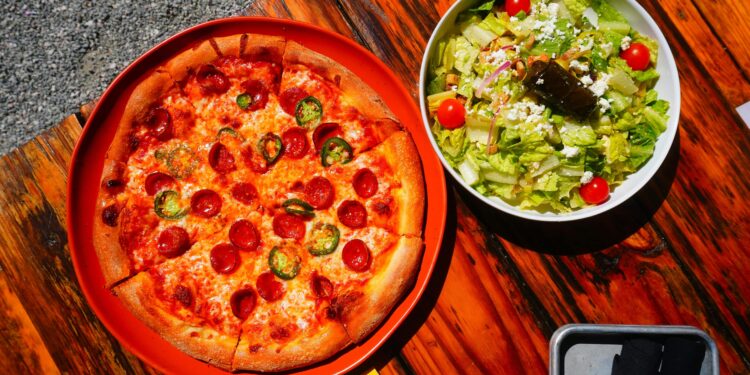Introduction
Ramadan Meal Prep ? Ramadan is a holy month observed by Muslims worldwide, dedicated to fasting, self-reflection, and deepening spiritual connection. While the focus is often on the spiritual aspects, the physical preparation for Ramadan is equally important. One of the key elements of a successful Ramadan is meal planning. Proper meal prep ensures you have nutritious, energy-sustaining meals for suhoor (pre-dawn meal) and iftar (meal to break the fast). This guide will walk you through everything you need to know to plan your Ramadan meals effectively, ensuring you stay healthy and energized throughout the month.
Why Ramadan Meal Prep is Essential During This Month
1. Saves Time and Energy
During Ramadan, your energy levels may dip due to fasting. Preparing meals in advance saves you from the stress of cooking daily, allowing you to focus on worship and family time.
2. Promotes Healthy Eating
When you plan your meals, you’re more likely to include balanced, nutrient-rich foods that sustain you throughout the day. This helps avoid overeating or relying on unhealthy options during iftar.
3. Reduces Food Waste
Meal prepping allows you to buy and use ingredients efficiently, minimizing waste and saving money.
Step-by-Step Guide to Ramadan Meal Prep
1. Set Your Goals
Before you start, identify your goals. Are you aiming to maintain energy levels, lose weight, or simply eat healthier? Your goals will shape your meal plan.
2. Create a Meal Plan
Plan your suhoor and iftar meals for the week. Include a mix of proteins, complex carbs, healthy fats, and fiber to keep you full and energized.
Sample Meal Plan:
- Suhoor: Oatmeal with nuts and fruits, eggs with whole-grain toast, or yogurt with granola.
- Iftar: Grilled chicken with quinoa and roasted vegetables, lentil soup, or a hearty salad with chickpeas.
3. Make a Grocery List
Once your meal plan is ready, create a grocery list. Organize it by categories (produce, grains, proteins, etc.) to make shopping easier.
4. Batch Cooking
Cook large portions of staple foods like rice, beans, and grilled meats at the beginning of the week. Store them in airtight containers for quick assembly during suhoor and iftar.
5. Portion and Store
Divide your meals into portions to make it easy to grab and go. Use freezer-safe containers for meals you plan to eat later in the week.
Tips for Healthy and Energizing Meals
1. Hydrate Wisely
Dehydration is a common challenge during Ramadan. Drink plenty of water between iftar and suhoor, and include hydrating foods like cucumbers, watermelon, and soups in your meals.
2. Balance Your Macros
Include a mix of protein, carbs. For example, pair grilled fish (protein) with brown rice (carbs) and avocado (healthy fats).
3. Avoid Processed Foods
Processed and sugary foods can cause energy crashes. Opt for whole, unprocessed ingredients to keep your energy levels stable.
4. Incorporate Superfoods
Add nutrient-dense foods like dates, nuts, seeds, and leafy greens to your meals for an extra boost of vitamins and minerals.
Tools and Equipment for Efficient Meal Prep
1. Quality Storage Containers
Invest in airtight, microwave-safe containers to keep your meals fresh and organized.
2. Slow Cooker or Instant Pot
These appliances are a game-changer for preparing large batches of soups, stews, and grains with minimal effort.
3. Meal Prep Apps
Use apps like Mealime or Plan to Eat to streamline your meal planning and grocery shopping.
Common Mistakes to Avoid
1. Overloading on Fried Foods
While fried foods like samosas and pakoras are tempting, they can leave you feeling sluggish. Enjoy them in moderation.
2. Skipping Suhoor
Suhoor is crucial for maintaining energy levels during the day. Never skip it, even if you’re feeling tired.
3. Neglecting Hydration
Failing to drink enough water can lead to headaches and fatigue. Make hydration a priority.
Conclusion
Planning your Ramadan meal prep is a powerful way to ensure a healthy and fulfilling month. By setting goals, creating a meal plan, and using efficient tools, you can save time, reduce stress, and focus on the spiritual aspects of Ramadan. Remember to prioritize balanced, nutrient-rich meals and stay hydrated to keep your energy levels steady. With these tips, you’ll be well-prepared to make the most of this blessed month.
Happy prepping, and Ramadan Mubarak!
Sweeten your iftar with these must-try Ramadan desserts! Which one will you make tonight? 🍮✨




































